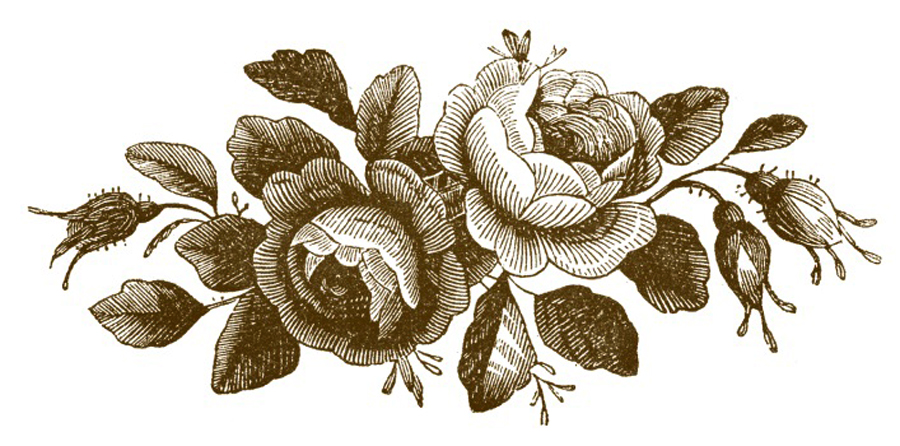Introducing our newest member to The Cultivating Project – Sadie Miller. Sadie brings the fresh perspective of a newly emerging writer to Cultivating with thoughtfulness, courage, and delightful promise.
I have been recently re-reading the book Walking on Water by Madeleine L’Engle and my heart is constantly encouraged and inspired by her words. Stories are more than just words on a page, and that means that the storyteller is more than just the person writing them out. As writers, we are painting elaborate pictures in black and white, opening the minds of our readers and turning on the creative sides of their brains. Writers are artists. Art isn’t just in painting or music. Beauty pulses through us and the world around us; art lives through everything. Words, in particular, carry the warmth and color that all art is.
Although words on a page display only black and white to the eyes, our words, when they are flowing from our beating hearts and lively minds, soar and fill others with life. Our words inspire and prompt readers to be artists as well, causing the beauty God types through us to catch and burn into other artists.
We write because we have a passion for it. It’s splendor and grandeur draws us in and calls us to be inspired. God works through writing in magnificent ways and when we write we can feel His presence working through us. Letting our passions and beauty flow through us, however, is a constant battle. We face many challenges as writers, young and old. The evil one is always lurking, looking for ways to tempt us to fall into a pit of despair. He uses, Procrastination, Isolation, and Discouragement, along with many other writing enemies, to pull us down into believing lies about our self worth and the worthiness of our writing.
The Temptation for Every Writer
Procrastination is the universal temptation for any writer, young writers especially. When I plan on dipping my toes in it for just a minute, I usually end up drowning in it. Summertime seems to be where procrastination thrives most freely. I step out of my bedroom in the late morning and think, “Oh, I can write today! No school, no work until later… that means no distractions, right? I’ll get something done!” However, my planned out writing day doesn’t happen the way I ever foresee it. I end up watching a television show that I really don’t care for but it’s on, or I get to talking with a friend on Facebook Messenger for awhile. Procrastination can be really fun… but annoying when you look back at your word count on your work in progress.
“Progress”… there’s another word that I don’t often like to think about when I’m “procrastinating” by texting with friends or scrolling through Pinterest. If I want to become a great author, I have to actually make some progress on my work. However, progress often comes in different forms. We can’t always write whenever we feel like it. Our minds sometimes get clouded with a writer’s block or we just don’t have the time with activities and other responsibilities.
I find that I get the most writing done when I don’t force myself, but when I compel myself. I sit in front of my computer and keyboard and I just start writing my thoughts out enjoyably. That one scene that has been lingering on my heart for weeks just needs to get out. Even if that inspiration isn’t directed towards “progress” in the current work, just getting words on the page or thoughts through one’s head is progress compared to nothing at all.
We are also still artists when we just end up sitting at the keyboard with a blank stare. In one way or another, as long as our minds are set on the story and honoring the Lord, we are making progress. We are constantly learning, and continually on a journey, even when our word count isn’t climbing. Giving up completely or not thinking about writing is more of a damper on progress than anything.
Other times, when my work is going well and the word count is hitting new heights by the day, I can find myself staring at my work and only seeing failure. I think: “Maybe I’m just no good. Why do I even bother? How many pointless hours have I spent on all this junk?” I put myself down and tell myself that I am not good enough to finish or even make an effort towards finishing it. “My work in progress is trash, right? Shouldn’t I just give up?” I moan. I set my mind towards a horrible, hopeless end, a hole I almost don’t want to climb out of.
Facing Our Worst Critic and Resisting Our Worst Enemy
As writers we are almost always going to be our worst critic. Dooming ourselves to an end isn’t going to help any. We can always get better, by learning from our own writing as well as other authors’. So, re-writing and critiquing our own work isn’t a bad thing. Telling yourself that you’re not even good enough to rewrite it and learn, however, is a lie. As writers it’s our job to learn more about the world, beauty, and their Creator. It may take awhile to finally be happy about your work, but it takes time and effort that won’t happen if you dig yourself into a rut.
If you take that journey alone, though, it can get quite stressful or even depressing. Isolation is more injuring to our work than helpful. I don’t mean that going into your room for a cup of coffee and nice, long, ALONE time writing is a bad thing. Working from home with other people around doesn’t always aid in the flow of inspiration. I mean, isolating yourself off completely by holding back your work and it’s beauty from people that may be able to help. When isolation sets in, we are surrounded by our own thoughts and the assumed thoughts of others. The discouragement sinks in and our own critiques can get injuring towards our work effort. We can get to the point where we just want to throw all our material away, none of it works, none of it could ever work.
When I first started writing I was about ten. My short stories were full of problems and they were pretty downright awful, but I never would have grown as a writer without them. The main motivation that kept me from giving up was that I had a passion for the writing in general. I loved the stories and I felt that they needed to be written down. I’m glad that I did write them down now, rereading them I can plainly see that I have greatly advanced in my writing.
Forming a defense and ‘Bandersnatching’
The other special encouragement I had was a reader that gave me the best feedback and advice. My reading friend was also a writer and one of my best friends and cousin. She kept me from isolating myself and throwing out what I started with. She read my short stories even though they were pretty terrible and immature, and she still reads my work and gives me the constructive and encouraging feedback that I need to persevere.
Although I know it’s hard for young writers to hand their works over to others for feedback, it really does help in the writing journey. Our writing is our pride and joy, our heart and souls written on paper, so we worry how others will respond to that. As long as the young artist has prepared for any sort of response, it should make a huge difference to them in their writing journey. Having an open mind to any critical review is crucial as a writer and a young writer in particular because of their lesser experience. We will often come face to face with judgement or evaluation. It’s hard to keep it from hitting our hearts but, if we consider it in a constructive view, it can aid us rather than bring us down.
With the help and encouragement we gave each other and the inspiration from Diana Pavlac Glyer’s Bandersnatch, I and my cousin, Caryssa, decided to start a group for young writers in our area. We aimed to provide a way for other young writers to get feedback and aid from other young writers. We wanted to call them out of isolation and onto a journey that could catch more hearts on fire with the love of Christ and the eyes for beauty. After a lot of prayer and communication, our little group has been slowly growing into what we like to call, “The Wordsmith’s Guild”.
The Inklings, a group created by C.S. Lewis, Tolkien, and others, assisted C.S. Lewis and J.R.R. Tolkien in growing as writers and continuing in their writing pursuits when they were tempted to give up. Although we aren’t a big group, we try to be as supporting to each other and connected as the Inklings were. I have asked our members each to give an honest quote about how The Wordsmith’s Guild has been beneficial to them to show how feedback from others can really motivate and grow a young writer. Here are their comments:
“The Wordsmith’s Guild has been an immense source of inspiration to me and it’s been rewarding to see how everyone is growing as a writer. It’s great coming together as a group with all of our different strengths, personalities, and genres, all bound by our passion for writing.” – Caryssa Hemmen (co-admin)
“The meetings are so much fun! It’s cool to hear each other’s stories. It gives me inspiration to continue writing. Each time we meet I’m so excited to give the next sections of my story.” – Cherith Bulfer
“The group has helped me through a lot of the struggles such as going from ‘What should this character’s name be?’ to ‘What should I do next?’ I think this group has helped give me feedback for what I have written.” – Ciara Swan
“Stories aren’t really alive until they leave your mind and you share it. In our group of close friends, not only do we share our characters, their adventures and, over all, our hearts, but we also get much needed writing advice. We all have strengths and weaknesses and give advice that strengthen one another’s stories is awesome. There’s also a crazy cool connection between authors like us. Plus, when The Wordsmith Guild is based on the Inklings we can’t go wrong! C.S. Lewis and J.R.R Tolkien are my heroes.” – Naomi Meeks
Letting other writers into your world is sometimes hard, but it is very worthwhile. We all hit seasons in our lives where we feel like we are alone and at a loss for words. We can climb out of those crevices and stand over them victorious and ready for more writing than we were before. Young writers are never alone while other writers exist on this earth. We all go through the agony and the adoration that a love for words brings. The journey is always better together than alone. Sweat out this summer by writing out your inspiration with friends and support around you. You can write above the hot and frizzy effects of procrastination and discouragement, and emerge the victor!
Sadie Irene Miller is one of TCP founding team members, joining when she was a young writer finishing high school. She is a proud homeschooler and the oldest daughter of five children. Hanging out with family and friends, playing sports, and writing are some of her favorite pastimes. She is also the co-creator of a small writing group in her area. Her goal is to reach others with the love of Christ through her writing and her example.
Leave a Reply
A Field Guide to Cultivating ~ Essentials to Cultivating a Whole Life, Rooted in Christ, and Flourishing in Fellowship
Enjoy our gift to you as our Welcome to Cultivating! Discover the purpose of The Cultivating Project, and how you might find a "What, you too?" experience here with this fellowship of makers!



This article is really great! Sadie has the perspective of someone older and further along in writing years. I have been able to read some of her fiction work and I love it! It’s wonderful to she her working with others with the same passion.
Derri, thank you for your kind words and encouragement! I am so happy to be able to give a place for Sadie to share her work and greatly look forward to her growth. She really does write with a wisdom beyond her years.
Dear Sadie, I agree with Derri and Lancia. You write with the authority and conviction of someone much older. I was shocked to read you’re just finishing high school! You’ve clearly logged a lot of hours of writing. I look forward to reading more of your work in the coming issues of Cultivating and seeing you continue to hone your craft.